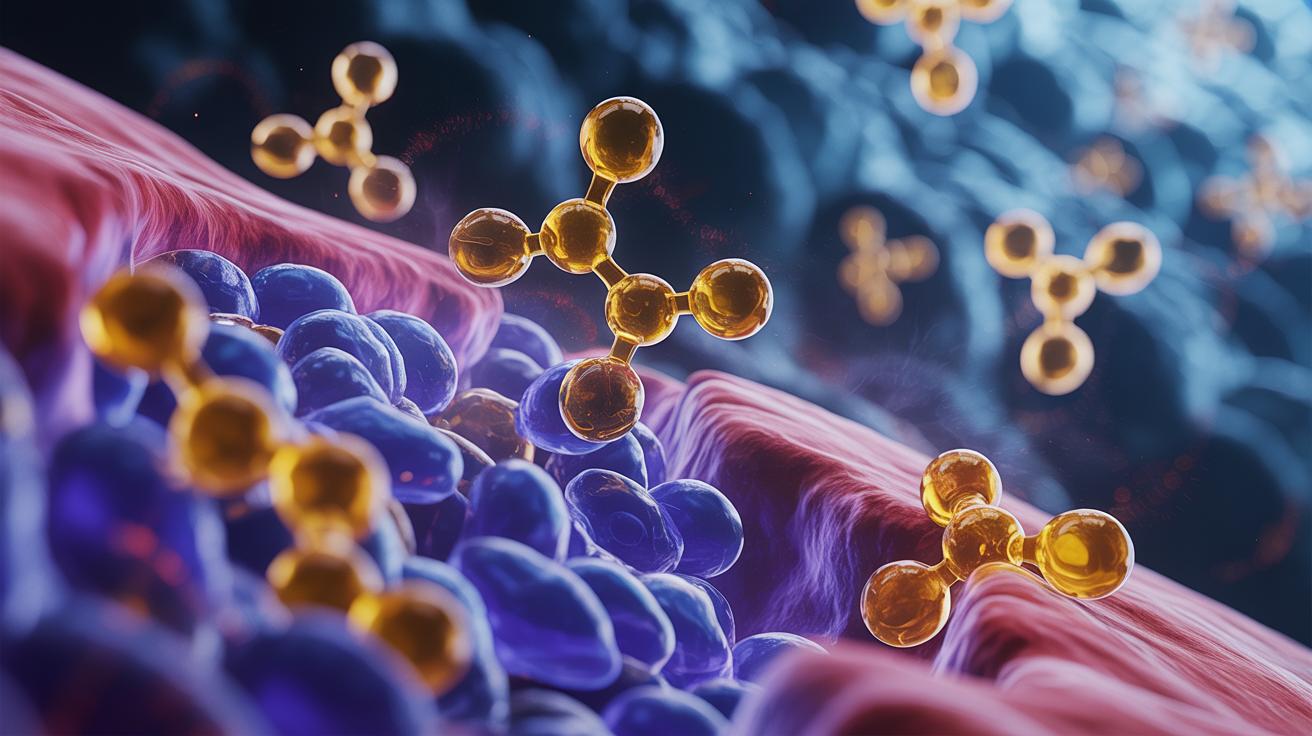What You Need to Know
- ☕ Caffeine’s Role in Aging: Recent studies suggest that caffeine may help slow cellular aging by activating crucial pathways.
- 🔬 AMPK Pathway Activation: Caffeine influences the AMPK pathway, which is vital for energy balance and cellular maintenance.
- 🧬 Research Insights: Findings from yeast models indicate that caffeine supports cellular resilience and longevity.
- 💡 Potential Applications: These discoveries could lead to new therapeutic strategies for age-related conditions.
- 🌱 Dietary Implications: The research opens avenues for exploring how other dietary components might influence aging.
The allure of caffeine extends beyond its capacity to awaken our senses each morning. Recent scientific research unveils fascinating insights into caffeine’s potential role in promoting healthy aging. Conducted by scientists at Queen Mary University of London and the Francis Crick Institute, this study delves into how caffeine influences cellular mechanisms, potentially leading to longer, healthier lives. By examining the impact of caffeine on cellular processes, researchers hope to unlock new pathways for enhancing longevity and combating age-related diseases. This discovery could potentially revolutionize our understanding of dietary influences on aging.
Caffeine’s Role in Cellular Health
Caffeine is widely known for its ability to provide a temporary boost in alertness and concentration. However, the recent study suggests that its benefits may extend far beyond mental stimulation. The researchers focused on how caffeine interacts with cellular structures, particularly through the AMPK pathway. AMPK, often described as a cellular fuel gauge, plays a crucial role in energy balance and cellular maintenance. When caffeine activates this pathway, it appears to enhance the cell’s ability to repair itself, withstand stress, and maintain healthy growth. These effects collectively contribute to delaying the onset of cellular aging.
The study utilized fission yeast as a model to simulate human cell behavior. This approach allowed scientists to meticulously observe how caffeine influences various cellular functions. By tracking changes in cell division and genetic responses, they discovered that caffeine doesn’t directly interact with the TOR (target of rapamycin) mechanism, a known regulator of cell growth. Instead, it modulates TOR indirectly through the AMPK pathway. This finding highlights caffeine’s potential in promoting cellular resilience and longevity.
Understanding the AMPK Pathway
The AMPK pathway is integral to maintaining cellular energy homeostasis. When activated, it helps cells manage low-energy conditions, promoting survival and efficient functioning. Caffeine’s ability to stimulate this pathway could have profound implications for aging. AMPK activation facilitates several key processes, including enhancing mitochondrial function, reducing oxidative stress, and improving metabolic efficiency. These benefits are particularly important in the context of aging, where cellular efficiency typically declines.
The implications of this research are significant, as they suggest potential applications for caffeine in developing therapeutic strategies. If caffeine can be harnessed to activate AMPK more effectively, it might lead to novel treatments for age-related conditions. Additionally, this pathway is highly conserved across species, meaning the findings could be applicable beyond yeast models. These insights open up new avenues for research into dietary interventions and drug development aimed at promoting longevity.
Implications for Future Research
While the findings are promising, further research is needed to fully understand caffeine’s potential in influencing human aging. Most of the current data is derived from yeast models, and translating these results to human biology requires additional study. However, the research provides a strong foundation for exploring caffeine’s role in human health. The possibility of developing caffeine-based therapies or dietary guidelines to enhance longevity is an exciting prospect that warrants further investigation.
Moreover, the study raises important questions about the broader impact of dietary components on aging. If caffeine can influence such fundamental cellular mechanisms, what other dietary substances might have similar effects? The potential for discovering new nutritional strategies to promote healthy aging is vast and underscores the importance of continued research in this field. As scientists delve deeper into these questions, the hope is to uncover more practical applications that can benefit human health.
Real-World Applications and Considerations
In addition to its potential health benefits, caffeine consumption is already widespread, making it an accessible option for many. However, it’s important to consider the possible side effects and individual differences in caffeine sensitivity. While moderate caffeine intake is generally considered safe for most people, excessive consumption can lead to negative effects such as increased heart rate and insomnia. As research progresses, understanding the optimal levels of caffeine intake for promoting health will be crucial.
The study also suggests that caffeine-based interventions might work synergistically with other lifestyle factors, such as diet and exercise, to enhance their effects. This integrated approach could offer a more comprehensive strategy for promoting longevity and reducing the risk of age-related diseases. As scientists continue to explore these possibilities, individuals might one day be able to tailor their lifestyles to harness the full potential of caffeine and other dietary components.
The exploration of caffeine’s impact on cellular aging marks a promising frontier in nutritional science. By understanding the mechanisms through which it operates, researchers hope to develop strategies that enhance health and longevity. As studies continue to unfold, the potential for caffeine to become a key player in aging research remains high. Could our morning cup of coffee be more than just a wake-up call, but a gateway to a longer, healthier life?
Did you like it?4.7/5 (20)







7 comments
theodore
Thx for the info! Maybe I should start drinking espresso shots every day! 🤔
Hannah_Seraphim
Great article! I wonder if similar effects could be found in other common beverages or foods.
MariahIllumination
Is there a specific type of coffee that works better for activating the AMPK pathway?
CooperPhoenix
Does this mean I can justify my coffee addiction as a health strategy? 😅
naomi
Thanks for sharing this! I’m curious about how much caffeine is considered beneficial for longevity.
Diego
So is it safe to drink more coffee now, or should I wait for more research?
eliecho
Wow, who knew my morning coffee could be the fountain of youth? 😄